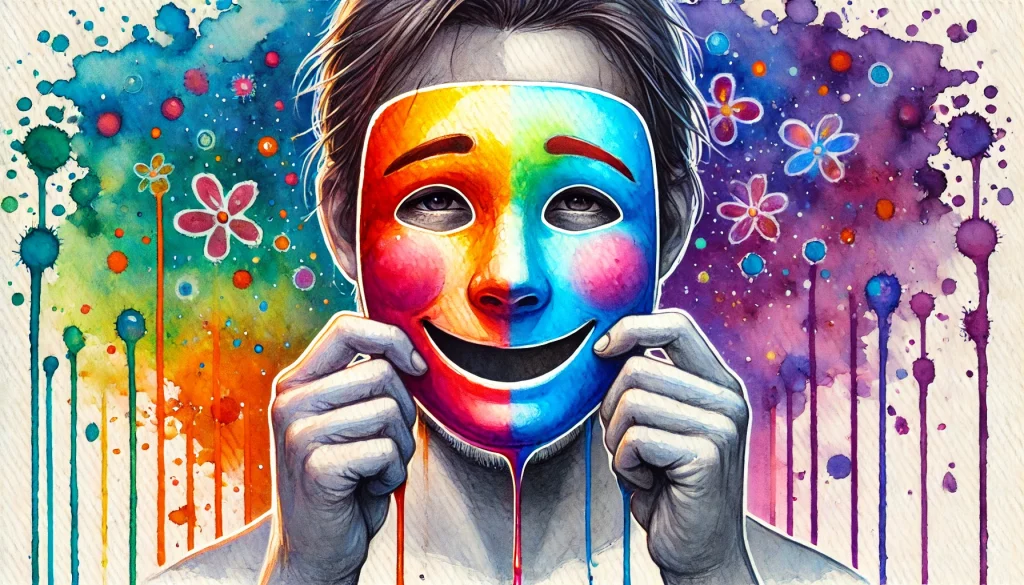
When we talk about mental health, depression and anxiety often come up together. It’s not uncommon for us to experience both at the same time, and it can be confusing to understand how they’re connected. We might wonder if one causes the other or if they’re just two sides of the same coin. Understanding the relationship between depression and anxiety can help us make sense of what we’re going through.
Depression and anxiety are both serious conditions that affect how we feel, think, and behave. While they have their differences, there’s also a lot of overlap between the two. For instance, both can leave us feeling overwhelmed, exhausted, and stuck in negative thought patterns. But the way they manifest can be different. Depression often brings a sense of deep sadness, hopelessness, and lack of motivation. Anxiety, on the other hand, is usually characterised by excessive worry, fear, and a constant feeling of being on edge.
It’s important to recognise that depression and anxiety can feed off each other. For some of us, anxiety might come first. We could be constantly worrying about the future, fearing the worst, and struggling to manage the stress that comes with it. Over time, this anxiety can start to wear us down, leading to feelings of hopelessness and despair—hallmarks of depression. On the flip side, depression can also lead to anxiety. When we’re feeling down, we might start to worry about our ability to cope with life’s challenges or fear that things will never get better. This can create a cycle where our anxiety fuels our depression and vice versa.
Let’s imagine someone who’s dealing with both. They might start out feeling anxious about work, constantly worrying about meeting deadlines and pleasing their boss. This anxiety keeps them up at night, making it hard to sleep. As the weeks go on, the lack of rest takes a toll. They start to feel more and more exhausted, which makes it even harder to keep up with work. Their anxiety worsens, and they begin to feel hopeless about ever catching up. Eventually, the exhaustion and hopelessness turn into depression. Now, they’re not only dealing with the anxiety of work but also with the heavy weight of depression. It’s a cycle that’s hard to break.
One of the reasons depression and anxiety are so closely linked is because they share some common underlying factors. Both can be influenced by genetics, brain chemistry, and life experiences. For example, if someone has a family history of mental health issues, they might be more prone to both depression and anxiety. Similarly, traumatic events or chronic stress can trigger either condition, and once one sets in, the other might follow.
Another reason these two conditions often go hand in hand is because of the way they affect our thought patterns. Both depression and anxiety can lead us to think negatively about ourselves and our lives. When we’re anxious, we might focus on worst-case scenarios and feel like everything is out of our control. When we’re depressed, we might believe that nothing will ever get better and that we’re powerless to change our situation. These negative thought patterns can reinforce each other, making it even harder to see a way out.
Our behaviours can also play a role in how depression and anxiety interact. For example, when we’re anxious, we might avoid situations that make us uncomfortable. This avoidance can lead to isolation, which is a common symptom of depression. Similarly, when we’re depressed, we might not have the energy or motivation to engage in activities we used to enjoy. This lack of engagement can make us feel more anxious about our ability to cope with life’s demands.
Sometimes, the symptoms of depression and anxiety can be so closely intertwined that it’s hard to tell where one ends and the other begins. We might feel anxious about being depressed, or depressed about feeling anxious. This can create a confusing and overwhelming experience, where it feels like we’re caught in a loop of negative emotions.
Recognising that depression and anxiety are connected is important because it helps us understand that what we’re feeling is not unusual or isolated. It’s common for these conditions to occur together, and we’re not alone in experiencing them. By understanding this link, we can start to make sense of our feelings and realise that it’s okay to have both anxiety and depression. Living with both depression and anxiety can be challenging, but understanding the connection between them can be a first step toward managing our mental health. While we might not have all the answers, knowing that these conditions are linked can help us be more mindful of how we’re feeling and why. It can also remind us that we’re not alone in this experience, and that it’s okay to seek support when we need it.
If you or someone you love is struggling with depression, you don’t have to go through it alone. At My Practice Counselling Melbourne, Jonathan Riley and our team are here to help. Reach out today to start your journey toward a healthier, happier life. Contact us now to book an appointment.